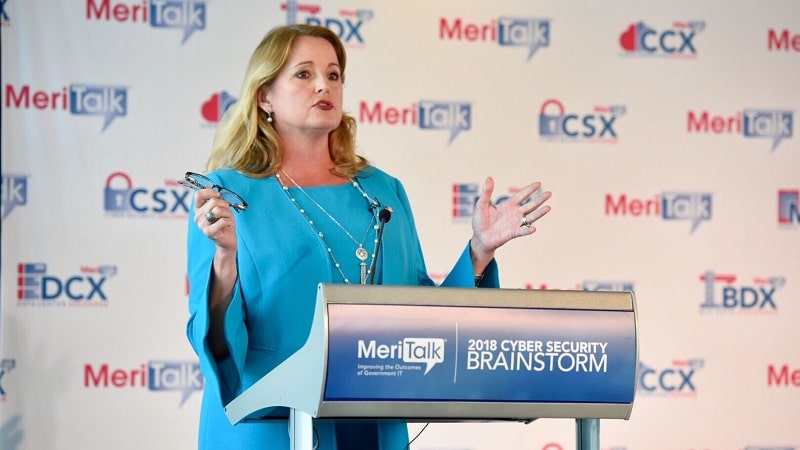
At an Oct. 16 Bipartisan Policy Center event, Federal CIO Suzette Kent and Rep. Will Hurd, R-Texas, discussed the impact of artificial intelligence (AI)-based automation on the national workforce.
On Feb. 11, 2019, the Trump Administration released the Executive Order (EO) on Maintaining American Leadership in Artificial Intelligence, which called on the Federal government to help train “a workforce capable of using AI in their occupations.” The EO did not address how AI could render jobs obsolete due to automation, instead, it focused on how education and training can enable bot the private and public sector to capitalize on AI and help the workers do their jobs more effectively and efficiently.
Since the EO was released, the Federal government has developed many programs and initiatives to further AI technologies. Additionally, agencies have spent time investigating what career paths the deployment of more AI might create. The approach seems to counter the general public’s fears that AI means fewer jobs, not more. Kent, who has overseen the Federal Cyber Reskilling Academy, downplayed the fears of automation, saying it was nothing “we haven’t heard before in our nation.”
“Something comes along that radically changes the way that we work, the way that we live, and creating fear about that is not the best path forward,” Kent continued. “We know for a fact that we are creating more jobs in the data space, in the computational space. We have more gaps than we can forecast that we think we’ll be able to fill.”
As for how AI will impact the current Federal workforce, Kent stresses that AI will allow workers to move away from menial tasks – data entry for example – and move to more high-value work.
“Yes, there are some roles that are going to be automated, but not too many people, when I go and talk to them, really like entering from one report to the next report. They get really excited by using algorithms to draw conclusions faster,” Kent said.
As opposed to Kent’s more rosy outlook on AI, Hurd shared his own concerns at the panel discussion. Namely, whether the government and the general public will be able to keep up with technological breakthroughs.
“The technological change we’re going to see in the next 30 years is going to make the last 30 years look insignificant,” Hurd said.
Hurd, who announced he won’t be running for office in 2020, is currently working on a national AI strategy with his colleague across the aisle Rep. Robin Kelly, D-Ill., that he expects to release next May.
Stressing the need for a unified AI strategy, Hurd said, “We have to dramatically increase the resources devoted to research and development. The government should set an example in leading the way and adopting AI. This is going to save taxpayer dollars, but also make the government more efficient.”
As for what the government needs to do, Hurd explained that effectively deploying AI is “going to be able to find better digital-facing services and the Federal government and standards – we need to get rid of some of these onerous regulations that oftentimes get in the way of innovation.”
